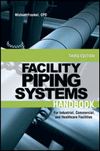Mike Miazga: Charlotte Pipe catches Chinese company using its intellctual property

A Chinese company brazenly displays Charlotte Pipe’s logo on a billboard. Photo courtesy of Charlotte PIpe.
Identity theft seems like it’s everywhere these days.
I’m sure we all know folks who have had their credit cards hacked or worse. It happened to me with a credit card numerous years ago. It was a royal pain to get everything straightened out and get a new card sent my way.
Look sometime on your local youth sports fields or courts. Odds are you will see some team blatantly stealing a professional sports team’s logo and claiming it as its own. In the city I live in, a local youth sports organization uses an NFL team’s logo. I seriously doubt they asked that team for permission.
And identity theft certainly isn’t immune to our industry. Charlotte Pipe and Foundry references numbers from the U.S. Trade Representative that found Chinese theft of American intellectual property currently costs between $225 and $600 billion annually.
Unfortunately, the 118-year-old privately held manufacturer now is part of that statistic. The cast-iron and plastic pipe and fittings heavyweight recently discovered Yitai Plastics, a Shanghai, China-based company, had brazenly registered the Charlotte Pipe name, brand and logo in the country back in 2010, meaning Yitai had been producing, marketing and selling plastic pipe and fittings for sale in China and several Asian countries under the Charlotte Pipe name for years — complete with exterior signage and even business cards with the Charlotte Pipe logo on them.
“We discovered it by accident,” Charlotte Pipe spokesperson Brad Muller told me recently. “They just stole our logo and were using it. There’s no sense of fairness here and no sense of business ethics. We can’t believe how brazen the Chinese are in gaining any edge in trade and technology. This is something that could affect a lot of people in manufacturing in America. It was right under our noses.”
Muller recently was a guest on Fox News on the subject of Chinese unfair trade and business practices — an appearance that drew widespread support for Charlotte Pipe’s situation. “The Fox reporters asked why did they pick us? We’re a strong brand in the plumbing industry, but this could happen to anybody, whether it’s a Kohler or Delta Faucet or Moen. Anybody could have their brand stolen,” Muller says.
And here’s the kicker. It’s not illegal.
“They registered the brand and trademark in China,” Muller says. “They don’t look at anything overseas. As long as they are selling the products in China, it’s legal as long as they were the first to register the mark, regardless of who might already own it.”
Muller notes Charlotte Pipe had to hire a Chinese law firm to attempt to recover its intellectual property. The bad news is the company may not succeed in putting a stop to Yitai using the Charlotte Pipe IP.
“If it’s successful, which is not guaranteed, we would have to pay the Chinese government to register our brand as intellectual property in China to prevent the situation from repeating itself,” he says. “There isn’t much faith we will gain much relief.”
Muller cautions situations like this could do great harm to companies without adequate financial resources to put up a fight. “Unfortunately, these types of remedies cost companies a lot of money,” he says. “Charlotte Pipe has the resources to defend itself, but maybe other companies do not. It’s a non-productive investment of resources. We’re not investing in what we should be, which is things such as machinery.”
For Charlotte Pipe, the ongoing fight goes well beyond intellectual property. The manufacturer continues to fight to keep the Chinese from dumping cast-iron pipe and fittings in the U.S. market at unfair prices.
As you may recall, Charlotte Pipe won its anti-dumping duty and countervailing duty case last July against imports of cast-iron fittings from China that were underselling the fittings at 367% less than fair value. It has another International Trade Commission hearing coming up on cast-iron soil pipe that it expects to prevail on as well.
“We’ve had to hire a D.C. trade attorney to litigate these,” Muller says. “We will defend our markets and products until we run out of resources to do it. It’s a matter of survival.”
Looking for a reprint of this article?
From high-res PDFs to custom plaques, order your copy today!









